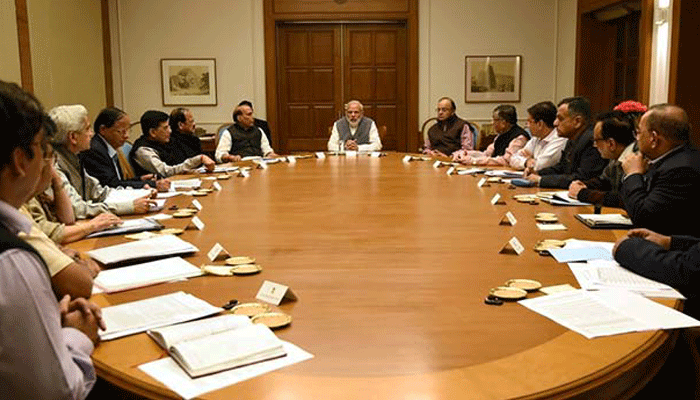TRENDING TAGS :
Corruption level has fallen but there is still a long road to go
New Delhi: The majority of people believe that the level of corruption has come down in the country in last two years, after the Modi government took some new measures and increased use of technology, but more efforts are required to be made to end this malpractice.
How long it will take to make the country corruption free is difficult to say, but this unethical practice can be certainly brought down to a much lower level. This is a common refrain.
There are several contributing factors. A good many people in the unorganised sectors are still ready to pay extra money for speedy disposal of their cases. They keep it going. Some men and women in the corporate sector too adopt the same method.
A consultancy firm, EY, which is one of the top four consultancy firms in the country, spoke to a number of employees in the corporate sector to find out the current situation. It has come to the conclusion that " unethical practices " are still " rife in India".
In a new survey conducted recently and released this month, it said,"as India continues to expand, some have hope that millennials will shirk the corruption-enabling culture of older generations. That, only time will tell. Until then, it seems that India's business community is slow to clean up its act".
The EY and its partner Ipsos surveyed 1,698 employees of large companies across 14 countries in the Asia Pacific region. In India, they found that while 60 percent of respondents felt that corporate ethics had improved over the past two years, 78 percent of them still said that bribery and corrupt practices occur widely in the country, compared with a regional average of 63 percent.
Forty-eight percent of Indian respondents said it was regular to accept bribes in exchange for contracts, compared with a regional average of 35 percent. Overall, India regularly outpaced the Asia Pacific region in occurrence and tolerance of corruption.
Seventy percent responded that the government’s efforts to curb such crookery, such as the Companies Amendment Bill, had a “substantial impact on corporate India”, but there is clearly still a very long road to go.
The culture appears to be set at the top. Fifty-seven percent of employees responded that senior managers would overlook questionable activity in favour of corporate targets and growth, and one in four said managers would ignore compliance controls.
Nearly half of employees said they felt under pressure to withhold information about misconduct.
One in four persons interviewed cited insufficient protections to whistle-blowers as one of the reasons for no major change in the situation.
Arpinder Singh, the India and Bangladesh head for fraud investigation and dispute services has, however, found that “the battle (in 2017) against fraud and corruption is expected to see a tectonic shift as India strives to keep pace with global standards, drive sound governance and stimulate business growth.”
As the world gets more complex and data heavy, fraud can be harder and harder to spot, the survey team believes.
One of the recommendations of the surveyor is that compliance teams should adopt forensic data analytics in order to assess and locate breaches. Reward and incentive systems for employees who expose frauds can also help in curbing corruption.



